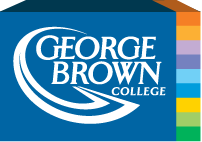About Early Childhood Education Program in George Brown College
Early Childhood Education is a two-year diploma program that combines alternating blocks of classroom theory and field practice to provide students with both theoretical and practical training. Students learn to work with infants, toddlers, preschool and school-aged children in a variety of early childhood education settings.
PROGRAM STANDARDS AND LEARNING OUTCOMES
The graduate has reliably demonstrated the ability to:
- Create learning contexts to enable, build and maintain caring, responsive relationships in partnerships with children, families and communities that value and respect social, cultural and linguistic diversity including Indigenous peoples' worldviews and Francophone identity.
- Co-create, facilitate and reflect upon inquiry and play-based early years and child care programs and pedagogical approaches to support children's learning, holistic development and well-being following children's capabilities, interests, ideas and experiences.
- Co-design and maintain inclusive early learning environments to value and support equitable, accessible and meaningful learning opportunities for all children, their families and communities in a range of early years and child care settings.
- Collaborate with children, families, colleagues, agencies and community partners to create, maintain, evaluate and promote safe and healthy early learning environments to support independence, reasonable risk-taking and healthy development and well-being.
- Use observation strategies to identify children's strengths and challenges and to ascertain when children and families might benefit from additional support or community resources.
- Use professional communication in interactions with children, families, colleagues, employers, the regulatory body, government authorities and children's service agencies to meet legal and ethical standards of the early years sector.
- Act in accordance with relevant legislation, regulations, College of Early Childhood Educators Code of Ethics and Standards of Practice, agency policies and procedures and principles of evidence-informed practice and reflect upon their impact on one's own role in early years and child care settings.
- Identify, report and document when a child is in a situation of perceived risk for, or actual neglect or abuse, in accordance with legislation, the College of Early Childhood Educators Code of Ethics and Standards of Practice, policies and procedures.
- Create and engage in partnerships with families, communities, colleagues, interdisciplinary professionals, authorities and child service agencies to advocate for quality early years and child care programs and services.
- Engage in reflective practice and continuous professional learning in accordance with principles of lifelong learning, evidence-informed practices in the early years sector and requirements of the College of Early Childhood Educators.
YOUR CAREER
GRADUATES OF THIS PROGRAM MAY FIND EMPLOYMENT IN:
- child care centres
- early years centres
- full-day Kindergarten
- parent resource centres
- pediatric playrooms
- special education settings
- integrated kindergartens
- therapeutic nursery programs
- in-home care
Academic qualification equivalents
- Have graduated from senior secondary school or equivalent (those applying for a postgraduate program must have graduated from a university or college)
English language requirements (one of the below):
- IELTS : 6.0, minimum 5.5 in each skill band
- TOEFL : 80 (Internet-based) minimum 20 in each skill band
- PTE : 54, overall minimum 50 in each skill band
George Brown College Highlights
| Type of College |
Public |
| Campus Setting |
Urban |
| Location |
Toronto, Ontario, Canada |
| Number of Campuses |
3 + 3 (location/centers) |
| Type of programs |
Certifications, Diploma, Degree, and Continuing Education |
| Number of full-time students |
32,000 + |
| Number of part-time students |
3,000 + |
| %age of International Students |
17% |
| Official Website |
www.georgebrown.ca |
George Brown College The Average Tuition Fees And Other Expenses
| Student Type |
Tuition Fee |
| Canadian students |
2780 - 15310 USD(two semesters) |
| International Students |
11,320 - 23,900 USD(two semesters) |
Tuition fees for some of the popular programs offered by George Brown College are mentioned below
| Course Name |
Tuition Fee(USD) |
| B.Com |
6,052 |
| B.Tech |
7,272 |
| BSN |
5,430 |
| Wireless Network(Postgraduate) |
4,365 |
| Construction Management(Postgraduate) |
6,183 |
| Marketing Management(Postgraduate) |
4,176 |
Residence Fees
Although rents may vary depending on quality and location, most rents listed by the Housing Service are within the following ranges:
| Accommodation Type |
Rent |
| Shared Accommodation |
500 - 700 USD per month |
| One - Bedroom Apartment |
900 - 1,200 USD per month |
| Two - Bedroom Apartment |
1,100 - 1,500 USD per month |
| Three - Bedroom Apartment |
1,300 - 1,800 USD per month |
Meal Plans
The college provide three types of meal plan options its students, the details of which are mentioned below:
| Plan Name |
Cost |
| Annual Swipe & Save Plan |
1700 USD |
| Semester Swipe & Save Plan |
850 USD |
| Swipe & Save Reloadable Card |
400 USD |
